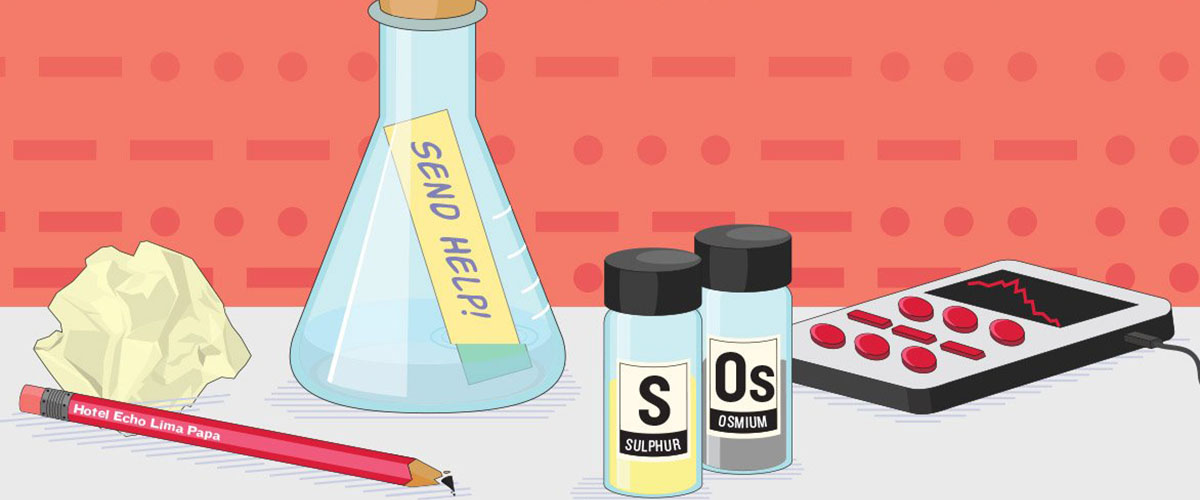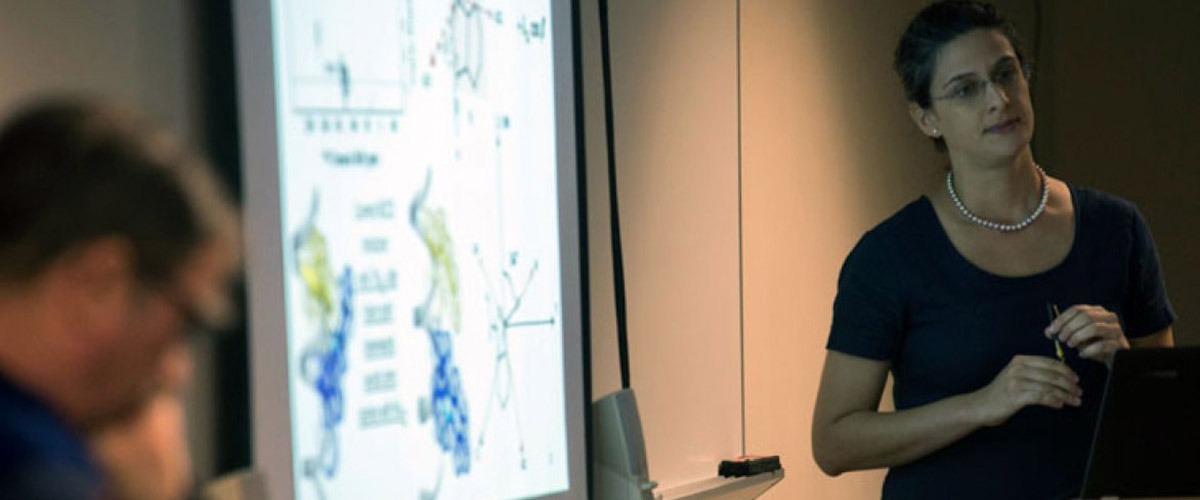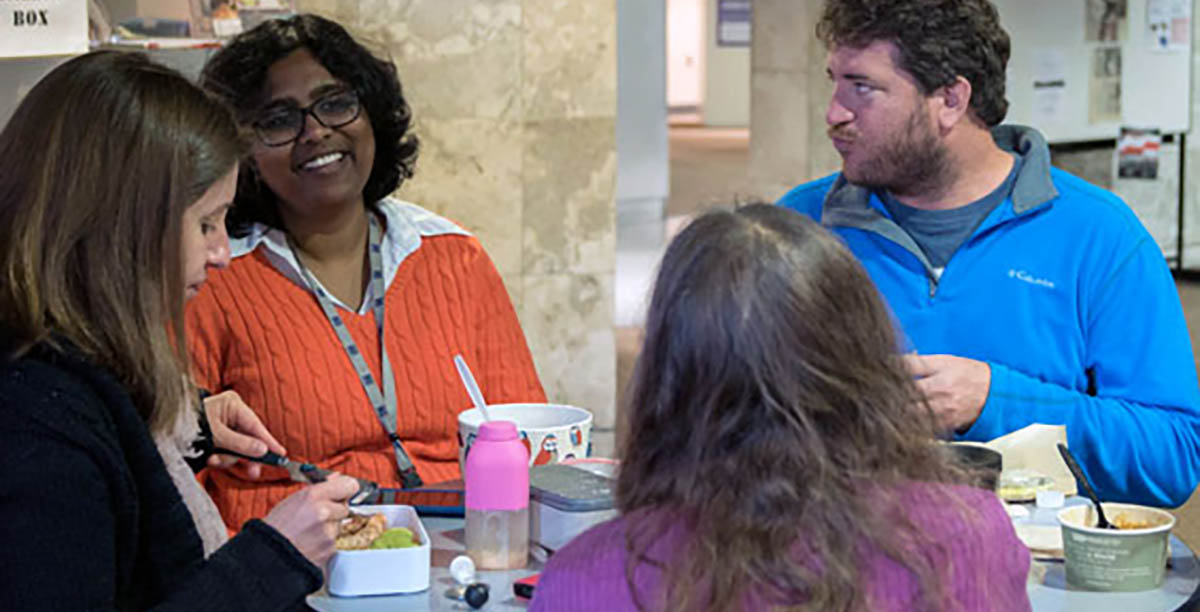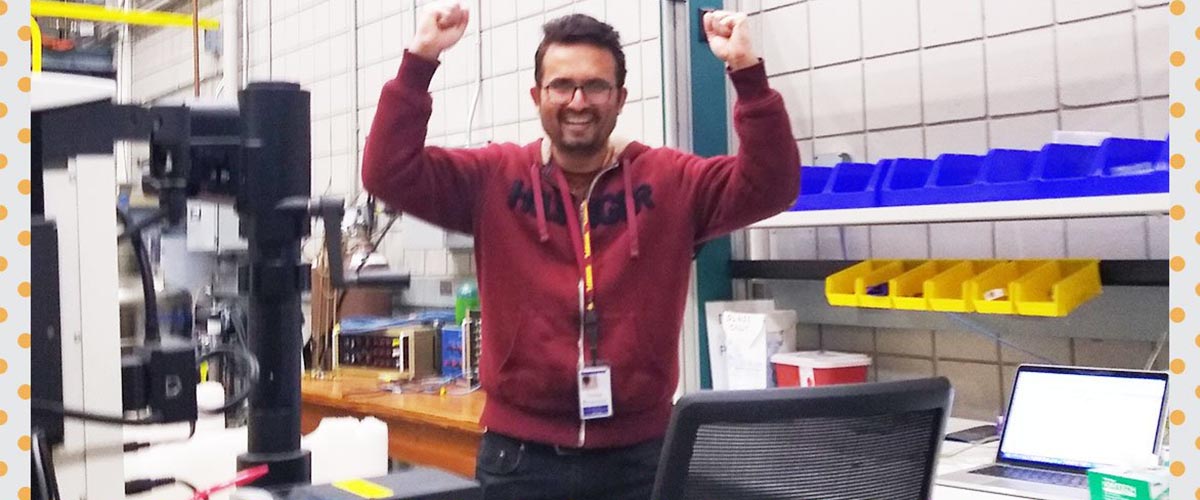Scientists encounter obstacles both in and out of the lab. Not every experiment goes as planned, and neither does life.
The three scientists in this story are no exception. Each has struggled with a different challenge, including finances, health, academic failure and career detours. But they all overcame them in the same way: They asked for help.
Science is, after all, a social endeavor. Scientists don't conduct experiments or publish research on their own, and they can't single-handedly clear every hurdle thrown their way, either.
Whether turning to a mentor, a friend or a professional, scientists say, the key is to find someone to listen, share wisdom and guide you.
Making ends meet vs. making good grades
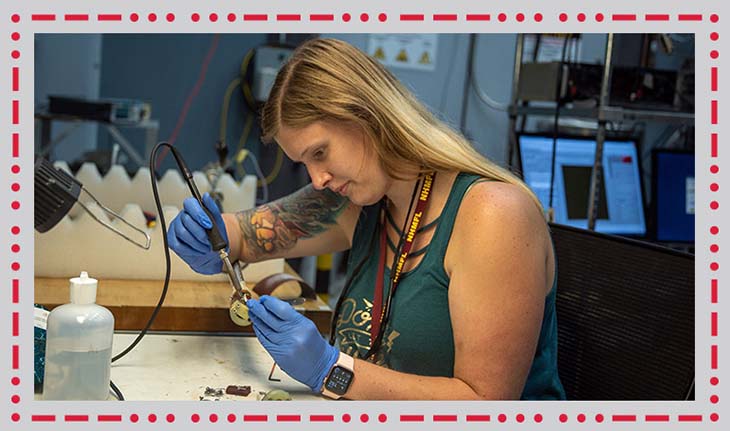
Ashleigh Francis
Photo: Stephen Bilenky
Ashleigh Francis has juggled school and a job (sometimes two) since she was 16. She was raised by a single mom and money was always tight. The first in her family to go to college, she had to continue working while earning her undergraduate degree at Florida State University, even with scholarships and grants. Her 30-hour weeks at Bed Bath & Beyond made it difficult to keep up with schoolwork, especially because she usually worked the night shift.
Some nights, she wouldn't get off until 1 a.m., leaving little time to study or sleep. Although her grades were passing, tests usually brought them down.
"I was typically not proud of them," Francis, a physics major, said. "I felt like I was doing something wrong because I wasn't measuring up to my own standards."
She continued to feel inadequate until a friend and fellow first-generation college student shared her struggles. The conversation helped Francis understand that her problems with money, work and school were not her fault.
"I realized that there were actual challenges that I was facing that did make it more difficult, and I shouldn't be so hard on myself," she said. Identifying her obstacles, and talking about them with someone who could really relate, helped Francis believe in herself and stay in college.
So did research. In a physics class during her sophomore year, Francis saw a magnet levitate during a demonstration of superconductivity and thought, "That's the coolest thing I've ever seen."
Shortly after, she was hired as a lab assistant in the Applied Superconductivity Center (ASC) at the MagLab.
"Even when I was struggling in classes, my job at the lab really motivated me to stay," she said.
It wasn't just the science that made her stay; it was also the scientists. Her advisor, MagLab Chief Materials Scientist David Larbalestier, understood that she was a student first, permitting a more flexible schedule than her retail job so she could focus on school. Despite feeling intimidated, she developed positive relationships with mentors, including Larbalestier and Eric Hellstrom, a MagLab researcher and professor at the FAMU-FSU College of Engineering.
"My professors seemed more than human to me, so I was terrified to speak to them, thinking I'd look stupid," she said. "But they're people too."
Her advice for young scientists experiencing challenges as first-generation college students is to talk to people. Francis sees a therapist, leans on her boyfriend of 15 years, and still turns to her mentors at ASC, where she continues working while earning her doctorate in materials science from FSU.
"I can go to them if I need to and tell them what's going on in my life," she said, "whether good or bad."
A diagnosis paves the way forward
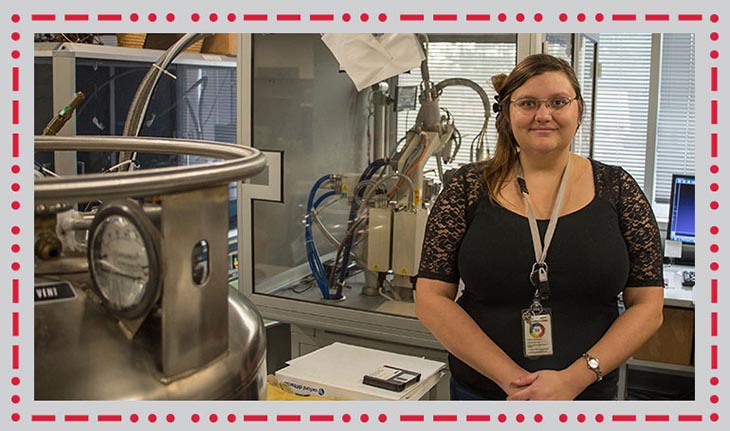
Alyssa Henderson
Photo: Stephen Bilenky
After the first year of her doctorate at FSU, Alyssa Henderson began to realize something wasn't right.
"I just started shutting down," said Henderson, who spent long days at a desk programming for nuclear physics research. "I would hate going in."
While filling out a symptom questionnaire during an unrelated medical exam, she scribbled a question mark next to "depression."
"I wasn't sure if I had depression because I didn't feel sad," she said. "I felt nothing."
She was referred to a psychiatrist, who diagnosed her with depression and social anxiety. Henderson was conflicted about starting medication, but began treatment after talking it over with her friends.
"I'm so glad I did because my life is so much better now," she said. "It's not hard for me to get out of bed in the morning anymore. I feel more like myself, I don't feel that null."
Henderson opened up to her roommates who, along with her beagle, Toby, helped her get through the tough times. "I lived with three of my close friends. I could tell them things and they were very understanding," she said.
Just like Francis, she advises those experiencing similar issues to talk to people. "Whether friends or a professional," she said. "Things can be a lot better. I think it is really important to not feel alone."
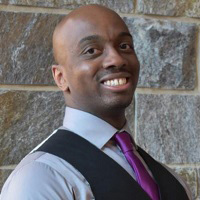
Caleb McKinney
Talking helped Henderson realize something important: She was in the wrong career. She ended up switching fields from nuclear physics to condensed matter physics. Instead of sitting at a computer, she began doing hands-on research, growing and characterizing quantum materials at the MagLab.
This worked out pretty well for Henderson. She recently finished her doctorate, published her first scientific paper as the first author and, after speaking in front of a packed auditorium, shared first place in a science-communication competition.
Sometimes a change of fields is just what's needed to get over an early-career hump. Caleb McKinney calls this plan A’ , using the scientific symbol for prime to describe a new career path.
McKinney helps students and postdocs reach their career goals as the assistant dean for graduate and postdoctoral training and development for Georgetown University's Biomedical Graduate Education program.
"Most of my work has been helping young scientists set or reframe their career goals due to challenges," he said. While he sometimes encourages students encountering obstacles to stick to their plan A, other times he helps them find a plan A’.
"I don't like to think of it as a plan B," McKinney said. "That sounds too backup-ish." He found his own plan A’ in career development, after completing a doctorate and postdoc in microbiology.
"Be kind to yourself during turbulent times," he said. "You have a lot to look forward to in your future, but remember that your current self is going to be doing the heavy lifting to get you there."
Soaring after an academic nosedive
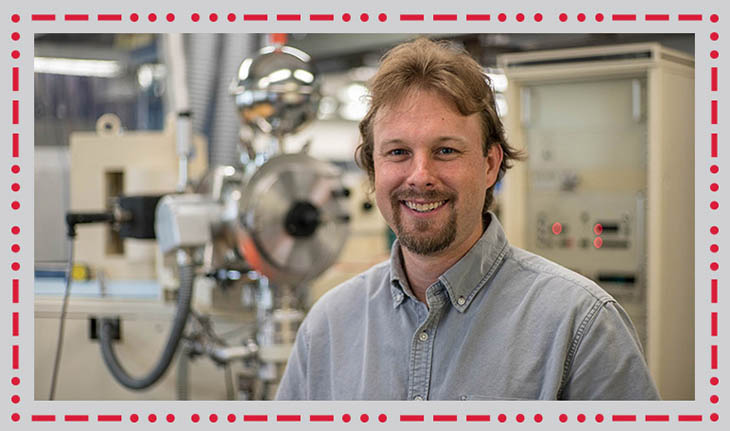
Jeremy Owens
Photo: Stephen Bilenky
Today Jeremy Owens has a thriving career as a geochemist. He is an assistant professor of marine geochemistry at FSU, studies ancient climate change as a researcher at the National MagLab and was awarded a $75,000 fellowship from the Alan P. Sloan Foundation earlier this year.
Not bad for a guy who flirted with flunking out of college.
"As a scientist now, you win awards and you get articles written about you, but nobody saw you in those times of struggle," Owens said.
Those times were in 2004, when Owens was a junior at the University of California, Riverside. During one quarter that year, he failed all but one class. He was kicked off the tennis team until he got his grades back up.
"It was one of those moments in your life when you look yourself in the mirror and you say, 'Did I get really bad grades because I'm not smart enough, or did I get them because I didn't really try?'" he said.
He decided it was because he didn't try, which motivated him to manage his time more efficiently, put school first and study more. Translating his work ethic from athletics to academics helped him buckle down.
Before, Owens managed mediocre grades. But after his academic wipe-out, he made the Dean's List every quarter.
"Without that moment, I probably would have just skated through," he said. "It's actually probably the best thing that happened."
Owens' path also involved a plan A’. He changed his focus from biology to environmental science and geology after his bad semester. Ancient climate change piqued his interest during a class with Timothy Lyons, a distinguished professor of biogeochemistry. But he had ruled out graduate school, assuming his GPA had sunk too low to get in.
Owens decided to share his concerns with Lyons. His professor not only helped him get into grad school, but eventually became the advisor for his doctoral degree.
"Letting other people know about your struggle and not hiding from it can actually be useful," said Owens. "Especially if you've learned from it and grown."
In times of trouble, each of these three scientists learned that you can't always go it alone.
"When students are sitting in front of me in a career coaching session, the first thing I say is, 'I'm glad that you're here and that you took the time to seek help,'" McKinney said.
After all, asking for help is really just another way of admitting you don't have all the answers. And that's a very scientific thing to do.
Finding Help
You probably have a well-stocked first-aid kit stored in a closet or drawer at home. After all, mistaking the tip of your thumb for a garlic clove is not the best time to wonder if there are any bandages in the house.
Caleb McKinney urges us to think about mental health in the same way. "When you enter a space, make sure you know where all the resources are," he said. "When you're in crisis, it's harder to navigate."
McKinney, assistant dean for graduate and postdoctoral training and development for Georgetown University's Biomedical Graduate Education program, said it can be hard for graduate students and postdocs to find those programs, which are often underfunded. But since 2018, when a high-profile article in Nature drew attention to mental health issues plaguing that population, things are improving, he added.
Although large-scale solutions have lagged, grassroots efforts have emerged. These programs can be hard to recognize — sometimes intentionally. "If you call it 'wellness,' people may shy away from it," McKinney said. But wellness principles have been integrated into everything from book clubs to job search training to help build resiliency in these populations.
Although the COVID-19 pandemic has added another layer of stress and anxiety, one upside is renewed attention to the need for wellness resources, McKinney said. Another is that the growth in online counseling and group therapy has made help available to more people.
McKinney recommends checking out the Office of Intermural Training and Education at the National Institutes of Health, which features a wellness section that includes a series on Becoming a Resilient Scientist. The National Postdoctoral Association also offers valuable resources and fosters community through discussion forums and a Tell Us Your Story program for postdocs facing bias, racism and social inequities.
"Finding ways to stay connected is so important," McKinney urged. "Stay connected with each other."
Need Help Now?
211
In the U.S. or Canada, you can call this number to get expert, caring help. 211 is a source of locally curated social services information that connects millions of people to help every year. More info at https://www.211.org/
Crisis Text Line
This is free, 24/7 support for those in crisis available in several countries. In the U.S. or Canada, text 741741 to talk with a trained crisis counselor. In the UK, text 85258 and in Ireland, text 50808. More info at https://www.crisistextline.org/
Story by Chris Patrick



